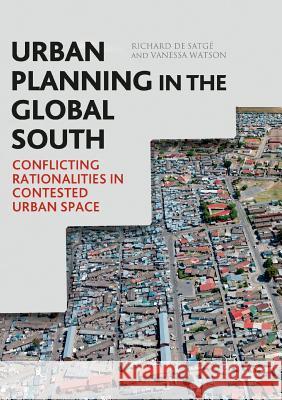Urban Planning in the Global South: Conflicting Rationalities in Contested Urban Space » książka
topmenu
Urban Planning in the Global South: Conflicting Rationalities in Contested Urban Space
ISBN-13: 9783030098902 / Angielski / Miękka / 2019 / 255 str.
Kategorie:
Kategorie BISAC:
Wydawca:
Palgrave MacMillan
Język:
Angielski
ISBN-13:
9783030098902
Rok wydania:
2019
Wydanie:
Softcover Repri
Ilość stron:
255
Waga:
0.32 kg
Wymiary:
21.01 x 14.81 x 1.45
Oprawa:
Miękka
Wolumenów:
01
Dodatkowe informacje:
Wydanie ilustrowane











